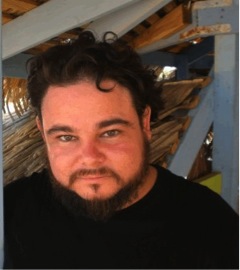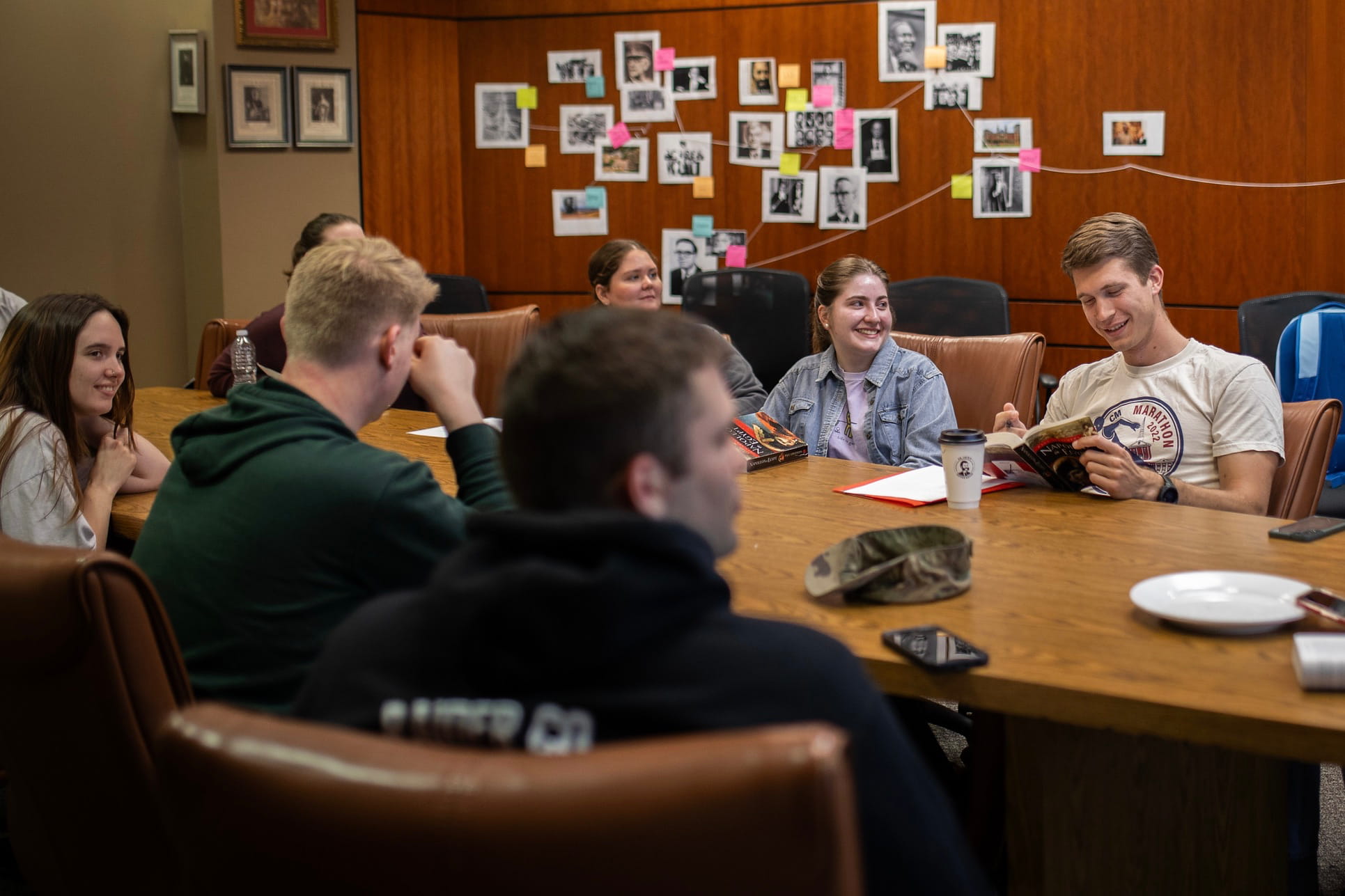Rodriguez’ Birkett Williams lecture compares political and ethical development
October 21, 2014 - Chelsea Whelpley
 Ouachita Baptist University recently hosted Dr. Juan Carlos Rodríguez, assistant professor
of Spanish at Georgia Institute of Technology, as part of the university’s Birkett
Williams Lecture Series.
Ouachita Baptist University recently hosted Dr. Juan Carlos Rodríguez, assistant professor
of Spanish at Georgia Institute of Technology, as part of the university’s Birkett
Williams Lecture Series.
The lecture series is held each semester and rotates among Ouachita’s seven academic
schools. This semester, OBU’s School of Humanities invited Dr. Rodríguez as the guest
lecturer. He addressed the political and ethical development of cities in Latin America
as seen through documentaries.
Rodríguez earned his Doctorate of Philosophy at Duke University. His research and
teaching focuses on the areas of cinema, documentary, urban culture and literature
from Latin America and the Hispanic Caribbean.
“Dr. Rodríguez’s talk made us think about how urbanization is a process that reveals
inequality,” said Dr. Margarita Pintado, associate professor of Spanish at Ouachita.
“We always think about progress as something positive, and of course it is, but we
have to also be aware of the downsides.”
The rapid growth of Latin American cities in the past 50 years has redefined the way
observers look at the region’s culture and societal relation, Rodríguez said. In his
presentation, “Urban Projections, Cinematic Bricks: Cities as Construction Sites in
Latin American Documentaries,” he explored how Latin American documentaries focusing
on the processes of building, demolition and renovation provide a window to examine
urban change and societal anxieties, which in turn comes to redefine urban imaginaries
of different cities.
Rodríguez defines urban imaginaries as the way city dwellers imagine their own cities.
These documentaries reveal the way people perceive, experience and transform their
cities. He also noted that documentaries offer cartographies of urban experiences
because cinema itself serves as an architectural practice.
“Early documentaries featured construction as a spectacle. From the 1930s to 1950s,
we see documentaries sponsored by government agencies and private corporations meant
to explain and promote the logic of modernization. This is the politics of development,”
said Rodríguez. “Later, in the 1970s to 1990s, we see the emergence of documentaries
made by filmmakers questioning the logic behind modernization driving the politics
of urban development.”
While previous documentaries in Latin America dealing with the cities’ built environment
tend to focus more on existing structures, recent productions are more interested
in revealing the building processes and social relations as they develop over time
in construction sites. The most recent documentaries, produced in the early 21st century,
consider urban transformation as an opportunity to explore issues connected to the
ethics of development.
“Development has a dual nature – it is both a vision of a better life and a process
by which society advanced toward that vision,” said Rodríguez. “Development is a complex
process, a process of change. It is not a harmonious process but rather a dramatic
one full of contradictions and conflicts.”
The politics of development refers to how political dynamics influence policy and
the role of the government in implicating strategies to stimulate development, Rodríguez
explained. The ethics of development generates value conflicts over the meaning of
the good life, recognizing that the growth and transformation of modernity involves
destruction.
“Development ethics considers the ethical and value questions posed by urban theory,
planning and practice as an agenda of questions about major value choices in both
processes of social and economic development,” said Rodríguez. “It examines the co-existence
of different ethic systems and embraces and immerses into the realities of urban development.“
Rodríguez showed clips from several documentaries to support his thesis. Using Under Construction directed by Ignacio Agüero, Rodríguez referenced several elements of observation
and conversation in the documentary that capture the patterns of urban change and
the social tensions resulting from demolitions. The film has a soundtrack providing
a sensorial journey, interview and testimonies, multidimensional characters and crossing
gazes that anticipate conflicts between old and new. These elements come together
to create an “allegorical image of uneven distribution in development,” said Rodríguez.
He explained that the monumentality of construction projects as a political platform
contrasts with the voices of migrant workers expressing indifference toward the project.
Tension rises between the ambiguity of the experience and conflicts over its values
and meanings.
“Now, the next time we see a building, a complex of apartments or a bridge, we will
think more critically about the impact that these changes have on people,” added Pintado.
“It also helps us to re-think the relation between politics, developers, workers and
the common citizen.”
Urban development is a long-term human process that will affect and change many people
and future generations. While development can be used to hide social tensions and
promote modernity, it also provides an opportunity for improving the human condition.
“We live in the Americas and these are things that are happening south of the border,”
said Rodríguez. “We need to be aware in order to create more bridges and more dialogue
to have a clearer idea of the possibilities of this country that has created a long-time
relationship with its neighbors.”
Ouachita’s Birkett Williams Lecture Series was established in 1977 through a gift
from the late Birkett L. Williams, a 1910 Ouachita graduate. The lectures provide
an opportunity to extend the liberal arts education outside of the classroom by bringing
leading scholars and public figures of various disciplines to Ouachita’s campus.
By Chelsea Whelpley
You Also Might Like
Ouachita reports Spring '26 enrollment, led by 50% increase in graduate students
February 11, 2026Recent
Ouachita reports Spring '26 enrollment, led by 50% increase in graduate students
February 11, 2026



